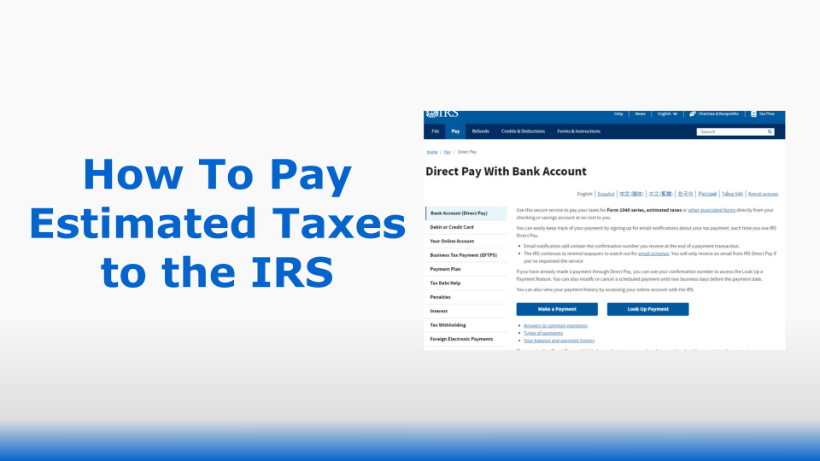IRAs and Your Taxes
Published:Tax Information for Individual Retirement Arrangements (IRAs)
Saving for your retirement through individual retirement accounts (IRAs) can have a significant impact on your taxes. IRAs are designed to give people incentive to save for their retirement, potentially offering greater tax benefits over other types of saving options. However, the tax savings on these investments is realized at different times, depending on the type of IRA you have.
Types of IRAs
All IRAs have caps on how much can be invested per year, as well as rules and regulations on when the funds can be accessed and how the funds are taxed. Although there are several types of IRAs, they are broken into two main categories for tax purposes: traditional or Roth. The biggest difference between them is when possible tax savings can be obtained from each.
Traditional IRA
The traditional IRA allows qualified taxpayers to deduct the amount of funds they contributed to the account each year. This means that each contributor can deduct up to the maximum amount allowed on their taxes — up to the point where contributions are required to be distributed, which is age 70½. However, if you participate in an employer retirement plan or have an Adjusted Gross Income (AGI) above certain amounts, you may not be able to deduct any (or all) of your contributions. Taxes are applied to distributions, except in cases where the contributions were not tax-deductible.
Roth IRA
With a Roth IRA, contributions are never tax-deductible in the year they are made. Instead, it is the distributions at retirement that are non-taxable, as long as they meet the IRS’ qualifications. A qualified distribution is: made on or after the date you reach age 59½, made to a beneficiary (or to your estate after your death), made because you are disabled, or used by a first-time homebuyer to purchase a primary residence.
READ: How Are Social Security Benefits Taxed?
For those who have low AGI and meet the other requirements, a traditional IRA can have an immediate impact on their taxes. However, for those that do not meet these requirements, a Roth IRA may be a better option because it offers tax savings at retirement. Furthermore, a traditional IRA does not allow contributions after a person turns 70½, whereas Roth IRAs do not have a cut-off time for contributions.
Taxes on Early IRA Distributions
In both Roth and traditional IRAs, there are penalties that may be assessed if you take an unqualified distribution or access these funds prematurely. In addition, unqualified payments from Roth IRAs will be taxed as regular income. It is important to understand these tax implications before deciding to request an early distribution.
In a nutshell, both traditional and Roth IRAs can offer tax savings, but each has limits on the amount you can contribute. Typically, those with lower incomes who can benefit from a tax deduction in the present will choose a traditional IRA. On the other hand, people with higher incomes will likely choose a Roth IRA for the deferred tax savings. Before choosing an IRA, seek out a tax professional or financial adviser who can help you understand which option is best for you.
For more information, please see IRS Publication 590: Individual Retirement Arrangements (IRAs).



